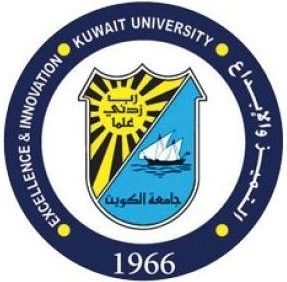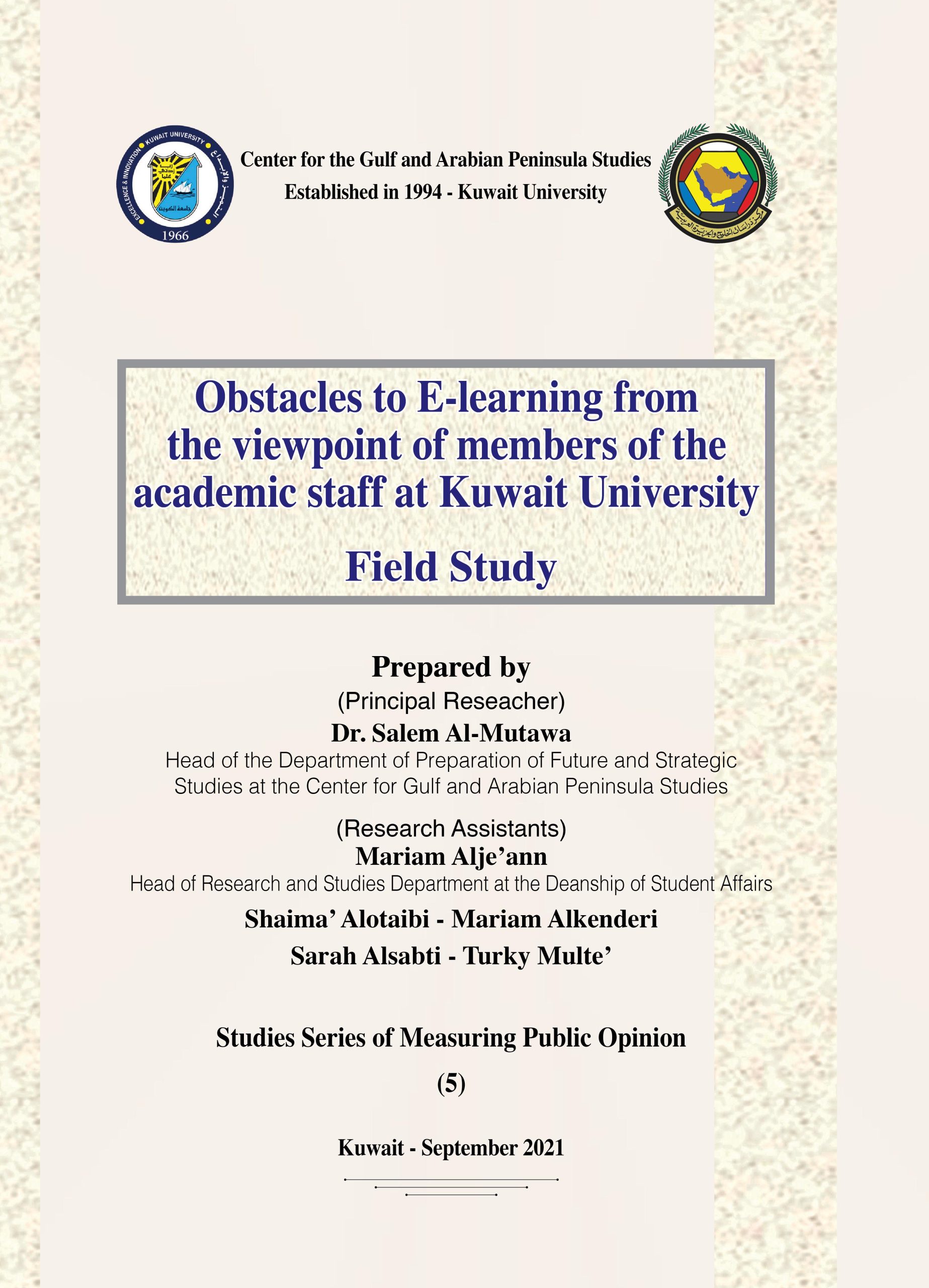Abstract: This current study aims to identify the obstacles to e-learning at Kuwait University from the point of view of academic staff members during the Corona pandemic “Covid 19”. The study sample consisted of (116) faculty members at Kuwait University, to whom the questionnaire was applied electronically, and it was prepared by Salem Al-Mutawa, and its validity and reliability were verified. The study revealed significant obstacles in the poor response of students to e-learning and their interaction with it, and the difficulty of achieving justice in evaluating students. The obstacles, to a moderate degree, are represented in the fact that the use of e-learning systems and technologies consumes a great deal of time and effort. The weakness of the feasibility of e-learning systems and technologies in which traditional methods are more efficient in the educational process, the difficulty of applying evaluation methods in the e-learning system, and the increase in the academic load on the teacher. Moreover, the negative impressions of professors towards e-learning, the ease of penetrating scientific content and tests, the lack of social culture regarding e-learning, the low motivation of professors towards using the e-learning system, the lack of privacy and confidentiality in saving data and information, and the lack of readiness of the information infrastructure in old sites (Shuwaikh, Kaifan, Al-Khalidiya, Al-Jabriya), the ambiguity of the philosophy and objectives of e-learning, the weak response of technical support when needed, and the lack of training courses regarding the use of e-learning. Then came the slight obstacles in the lack of experience in using e-learning. While no statistically significant differences were found according to the gender variable, as for the college variable, there were no differences in the total score and the two dimensions: technical and technical, but in the two dimensions: administrative and academic, there were differences.
The most important recommendations of the research were the following:
1. Developing a vision and strategic plan by Kuwait University to encourage academic staff members to present their lectures remotely.
2. Providing academic staff members with the best practices for effective distance teaching and electronic evaluation processes on a periodic and continuous basis; To keep pace with development of both types: technical and artistic, through scientific workshops organized or held under the supervision of the Vice President of the University for Scientific Affairs.
3. The necessity of balancing the two education systems: traditional and distance learning at Kuwait University. To combine the benefits of the two systems.
4. Spreading awareness among Kuwait University students about the benefits of e-learning and correcting some negative and erroneous ideas about it. This is because of its sudden and surprising application.
Hits : 878
